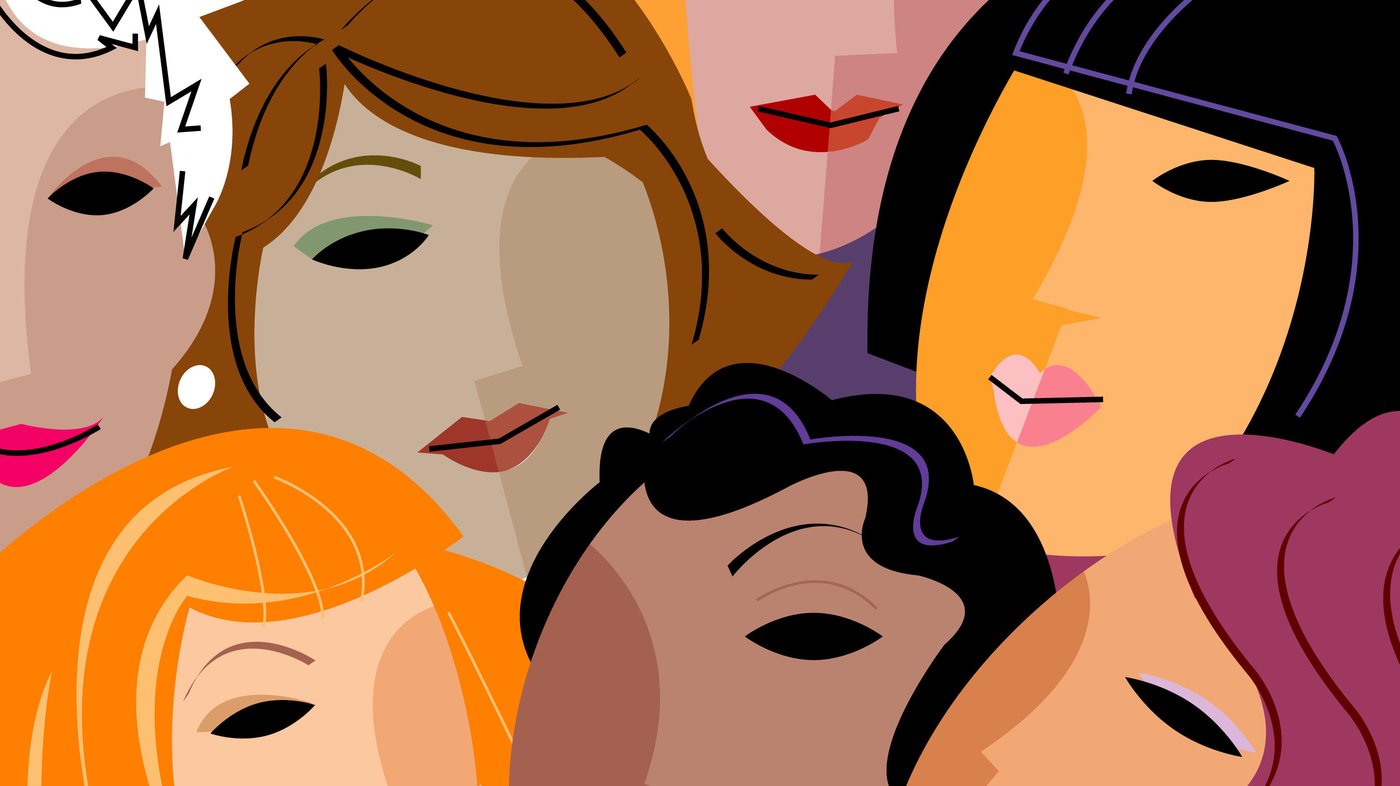 Editor’s Note: Feminism in India in collaboration with SHEROES have launched a campaign #HerDreamWorkplace to bring transparency and accountability to how diverse & women-friendly companies are. The goal of this mission is to motivate companies to invest in building a culture which has women at its forefront and connect women with #HerDreamWorkplace. Know more about SHEROES here.
Editor’s Note: Feminism in India in collaboration with SHEROES have launched a campaign #HerDreamWorkplace to bring transparency and accountability to how diverse & women-friendly companies are. The goal of this mission is to motivate companies to invest in building a culture which has women at its forefront and connect women with #HerDreamWorkplace. Know more about SHEROES here.Let me start this by stating the textbook definition of bro culture. Bro culture is an exclusive homo-social bond between men through which they further each other’s interests. The word ‘bro’ is not necessarily a synonym for male or guy.
Women at times can be complicit in the perpetuation of bro culture too, but it remains exclusive to the domain of heterosexual (mostly) men. Bro culture in a patriarchal society, which is any way biased towards the gratification of heterosexual or straight men, in practice tends to stifle the voices of those who find it difficult to thrive because of institutional sexism.
By institutional sexism, I mean most of the ways our society functions is heavily biased towards serving the straight man, even if it comes at the cost of inconveniencing others (read: other gender identities). Bro culture is complicit in validating straight male supremacy, and as patriarchy is embedded in everyday workspaces, bro culture tends to stifle or silence the voices of those who have a problem with sexism and microaggressions.
Talking specifically about workplaces, bro culture has a way of looking benign on the outset. Just office-guys going for a cigarette break, nothing seemingly malicious behind the intent of that particular activity. However, a closer reading of the situation of men’s homo-social bond in workplaces revealed something sinister about those otherwise benign looking activities of taking cigarettes break together and going for drinks after work.
I put an Instagram story on my private account that I was collecting experiences of those who have observed bro culture at work or have been guilty of perpetuating it. Several people reached out to me. The stories that I came across, to put it mildly, were upsetting. The sexism in corporate culture is rampant, and a lot of men actively made it difficult for women to work.
Neha* joined her company right after she graduated from college in 2016. She told me her initial experience at the office was wonderful. The people were warm, and the environment was more relaxed than she had anticipated before she joined the office.
“They made me feel very welcome, and corporate culture was very different than the idea that I had made up in my head listening to my family and friends talk about the private sector. They were good people, and the workload was just the appropriate amount.
I was working in a team with three men, and, okay they were nice and respectful, but they used to make microaggressions all the time, all the fucking time. They objectified women and made sexist remarks about a woman who did not have a very traditionally feminine build in the office.
One of them once told me the colour of my bra matched the colour of my pants. It was a highly inappropriate remark, and I felt like that person invaded my privacy, and just as I was about to call him out on it, all three of them started laughing, and I felt uncomfortable calling him out in that moment. Was I overreacting?
Anyway, I decided how I felt was valid and decided to call him out on it anyway. The three of them, yes all of three of them, suddenly grew very defensive and asked me to calm down. I said all I was asking was for them to not make remarks that make me uncomfortable. I told them sexism, even casual sexism was not okay.
They grew very quiet and did not talk to me the rest of the day. The next day they went outside to have lunch and did not invite me. I was okay with that. Two days later, our male supervisor called me into his office and asked me if I was feeling comfortable with my office and my team. I said I was. He said he was going to change my team, and I told him there was no need of that.
He told me he understands my teammates can make crude remarks and he was doing this for my ‘well being’. There are two teams in the office and the one that I am working for now is considered the superior one. I was downgraded to the other team against my will and for something that was not my fault. I left the company three months later, but my question is this – If they were the one making crude remarks why was I downgraded to the other team?”
Also Read: The Gender Pay Gap: Unequal Pay for Equal Work
The question was valid, and Ankita’s experience was of a similar nature.
“I am an unapologetic feminist, always have been. But something about the office environment made it difficult for me to disclose my politics. But anyway, that is not the most important part of this story.
There is a guy in my office, his name is Abhinav. He is a senior manager here. He and other men in the office often went for dinner or drinks or both after office hours, and something about that makes me uncomfortable. They used to come to the office and repeat the jokes and me and all the other women in the office felt uncomfortable, you know? Not just because they were sexist, I felt in a subtle way they were trying to alienate us from an experience that was supposed to be exclusive to them.
I, as a woman am supposed to be grateful that I get to work in the first place. This guy Abhinav, the reason I mentioned his name was he asked me out once. I refused because I was not interested. Two weeks later he asked me out again, and I refused again.
After the second time, I noticed a change, I noticed all the men in the office had stopped talking to me. Another one of my co-workers and friend Mehak told me she heard them slut-shaming me in one of their conversations. I gave my resignation later, I was going to attend grad school anyway. But it wasn’t a pleasant experience for me at all.”
So far, through the experiences of these women, bro culture seems like a tool to validate male entitlement. Is it hard to guess why women are fearful of reporting sexual harassment at work?
Arpit, who is also working in a corporate firm, shared his experience with me about being a part of the bro culture.
“I was brought up in a feminist household, and my elder sister is far more successful than I am. Male conversations in the workplace are definitely very sexist and misogynistic, I don’t want to generalise in case #NotAllMen starts (laughs), but as someone who has witnessed those conversations first hand, I can confirm how disturbing they are. And their behaviour around women generally changes, they are nice and respectful.
Some of them even claim to be feminists, but the conversations outside of it are just… I mean they have definitely internalized misogyny, I can tell you that. I don’t make sexist jokes, but I think even sitting there and being a part of it and not calling them out on it makes me complicit. I am not saying disparaging women is all they talk about, but it’s definitely a part of their conversations sometimes, and they don’t want women around them to witness that because they do not like being called out on it.”
There was another woman who reached out to me defending bro culture and said even if the conversations were misogynistic in nature they left her out of it because they respected her. I did not how to begin to address that problematic argument because that was an entirely different conversation for an entirely different article, but the point is, sometimes women can be culpable in perpetuating bro culture too. But never as nearly as culpable as men.
Bro culture is largely toxic and evidently upholds patriarchy. How do we address it?
When will men start admitting to their complicity in bro culture?
When will we stop advocating male supremacy altogether, even in its most subtle of forms?
Also Read: Boyhood And The Dangers Of Toxic Masculinity
SHEROES helps measure how friendly companies are towards women. More than 10,000 women have shared their experiences of how the bro culture affected their workplace experience and hindered their career growth. Some of the companies reviewed as women-friendly by the SHEROES community are Accenture, Evalueserve and Pricewaterhouse Coopers. Share your experience to help other women find #HerDreamWorkplace.
*All the names have been changed to protect people’s identity.
Featured Image Credit: Screen Musings





I think men are in deep denial about their addiction to toxic masculinity.
It’s an easy high — why would they give up endless privilege and power just because it’s unfair.
I’m a feminist, but the older I get, the more cynical I get about men.
It’s a rare man who can empathise with women and connect to their humanity.